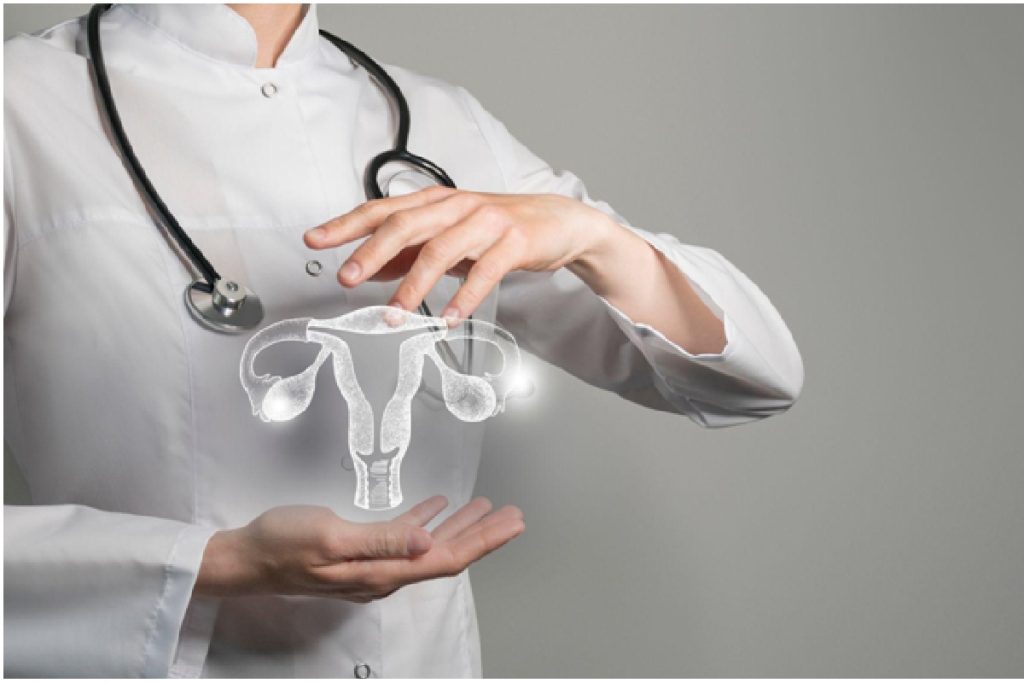You’re in your late 40s or early 50s. You’ve been noticing some… changes. Hot flashes? Check. Irritability? Uh-huh. NIGHT SWEATS? Yes, indeed. You might be wondering — am I starting menopause?
Before we get into detail about things like menopause fatigue and brain fog, and everything else you need to know, let’s start with the basics. Menopause is the natural end of a woman’s reproductive years. It occurs when the ovaries stop producing eggs and levels of estrogen and progesterone decline. For most women, menopause happens between the ages of 45 and 55 and lasts around seven years. But it can happen earlier or later and last longer. Some women may experience menopause as early as 40 or as late as 60. And believe it or not, it may last up to 14 years.
There’s no one-size-fits-all answer to the question “What are the symptoms of menopause?” because every woman experiences menopause differently. However, there are some common symptoms that many women experience during menopause.
If you think you might be experiencing symptoms of menopause, keep reading to learn 10 things you should watch for.
Table of Contents
Ten Signs You May Be Starting Menopause
-
Irregular Periods
It’s not uncommon for women to experience irregular periods as they approach menopause. In fact, this is often one of the first signs that menopause is on the horizon. As women approach menopause and their bodies begin to produce less estrogen, changes in the menstrual cycle can occur. This includes lighter periods, heavier periods, or periods that occur more or less often than usual. In some cases, women may even skip periods altogether.
While irregular periods are often nothing to worry about, it’s important to talk to your doctor if you’re experiencing any changes in your menstrual cycle. They can help you determine what’s going on and whether or not you need any treatment.
Other changes might signal something more serious is going on. If you experience any of the following symptoms, it’s essential to talk to your doctor immediately:
- Heavy bleeding that lasts longer than seven days
- Bleeding between periods
- Bleeding after sex
- Passing blood clots
- Severe cramping or pain during your period
-
Hot Flashes and Night Sweats
If you’ve been suddenly waking up in a cold sweat or feeling like your internal temperature is rising for no apparent reason, hot flashes may be to blame. Hot flashes are common during menopause and can be physically and emotionally uncomfortable. If you’re dealing with hot flashes, try wearing loose-fitting clothing, keeping an excellent ice pack handy, and avoiding triggers like spicy food or alcohol.
-
Irritability and Mood Swings
Moodiness is another common symptom of menopause. If you’ve been feeling unusually short-tempered or emotional lately, it could be due to hormonal changes. To help manage your mood swings, make sure to get plenty of rest, eat a balanced diet, and exercise regularly. You might also want to consider talking to your doctor about whether hormone replacement therapy could be right for you. This is designed to address hormonal imbalance symptoms in women during menopause.

-
Sleep Problems
During menopause, it’s common to have difficulty falling asleep or staying asleep through the night. Failing to address sleep problems can affect your energy and impact your memory. If you’re having trouble getting enough rest, aim to stick to a regular sleep schedule as much as possible and create a relaxing bedtime routine that promotes sleep. Avoid caffeine and screen time in the evening, and try to get some exercise during the day.
-
Changes in Appearance
During menopause, some women notice changes in their hair, skin, or nails. Hair may become thinner or more brittle, while skin may become drier or less elastic. These changes are often due to hormonal imbalances and can be frustrating to deal with. However, there are many ways to manage them. Be sure to use gentle hair care products and moisturize your skin regularly. You might also want to talk to your doctor about whether taking a vitamin D supplement or other natural supplements could help improve your situation during menopause.
-
Urinary Changes
A decrease in estrogen levels during menopause can cause thinning of the tissues around the urethra (the tube that carries urine out of the body). This can lead to urinary incontinence (the involuntary leakage of urine) or urinary tract infections (UTIs). If you’re dealing with either of these problems, be sure to see your doctor so they can prescribe the appropriate treatment.
-
Fatigue and Brain Fog
For many women, fatigue and brain fog are the first signs that something isn’t quite right. You may find yourself struggling to concentrate at work or having difficulty completing tasks that once came easily to you. And when you do finally make it to bed, you may find yourself tossing and turning all night long instead of enjoying a restful night’s sleep.

-
Anxiety
Anxiety is another common emotion women experience during menopause. Hot flashes, night sweats, and other symptoms can make even the simplest tasks feel overwhelming, leading to a sense of constant stress and anxiety. If your other signs are mounting and are now accompanied by anxiety, it’s essential to talk to your doctor.
-
Weight Gain
For many women, weight gain is one of the most frustrating aspects of menopause. So if you’ve noticed a gradual increase on the scale, know that weight gain during menopause is a common problem many women face. Hormonal changes can cause your metabolism to slow down, making it more difficult to lose weight or even maintain your current weight. If diet and exercise aren’t helping, it may be a sign that menopause is to blame.
-
Vaginal Dryness, Painful Sex, and Decreased Libido
Changes in hormone levels can cause vaginal dryness, pain during sex, and decreased libido (sex drive). This can often be a distressing symptom of menopause because it can affect your sexual relationship with your partner and your overall sense of self-esteem and femininity. If you’re experiencing any of these symptoms, don’t suffer in silence — talk to your doctor about treatment options that might help alleviate them.
Conclusion
Menopause is a natural part of every woman’s life. But just because it’s natural doesn’t mean it’s easy. Knowing the potential warning signs can help you prepare for what’s ahead and make the transition as seamless as possible.
